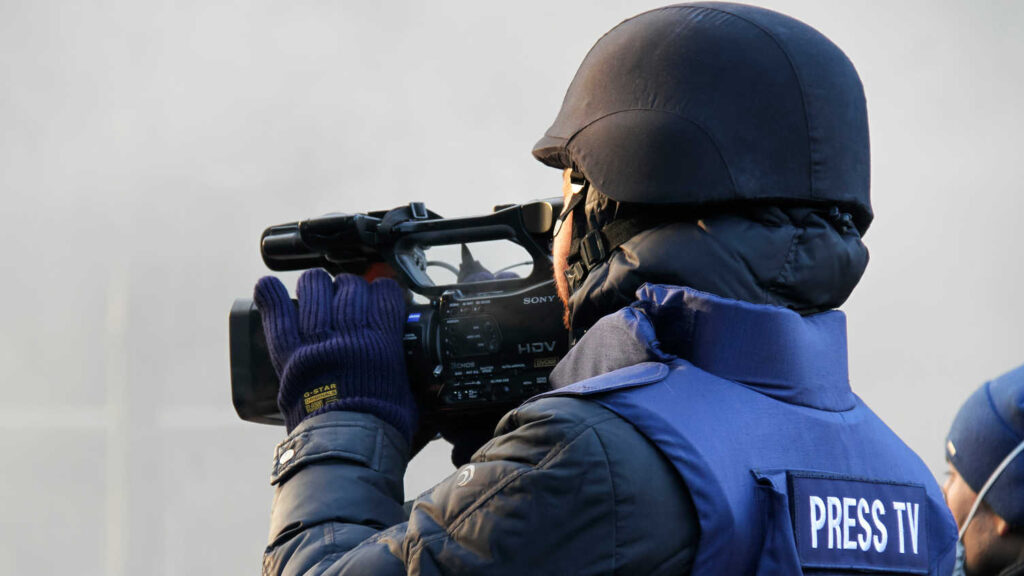
International Journalism Week took place from 3-6 November with this year’s theme focusing on Journalism in the age of drone warfare and democratic decline. CFOM hosted a panel on 6 November that focused on the challenges and opportunities posed by AI in newsrooms. Additionally, CFOM’s International Director, William Horsley, delivered his farewell lecture: ‘A life in journalism; and its death foretold’. The event was also hosted to mark International Day to End Impunity for Crimes against Journalists (IDEI).
The panel was opened by CFOM Chair and UNESCO Chair on Media Freedom, Journalism Safety and the Issue of Impunity, Professor Jackie Harrison. She spoke about the threats across the world that journalists are facing at a time of rising authoritarianism and financial struggle. She documented how state indifference to journalists’ safety was having an impact on them being able to play the watchdog role and hold those in power to account. She introduced CFOM’s International Director, William Horsley, for his farewell lecture, paying tribute to the work that William has done for CFOM.
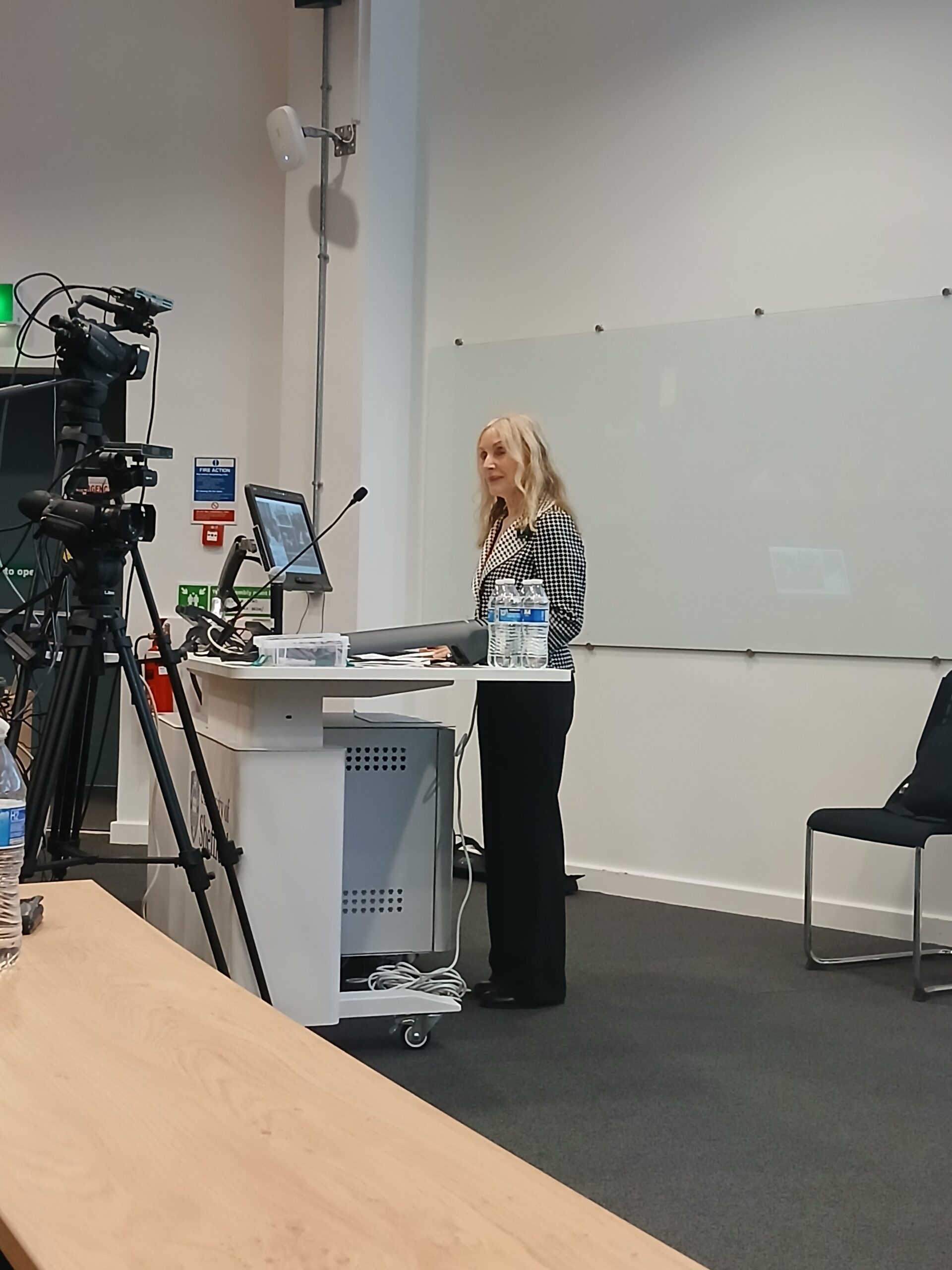
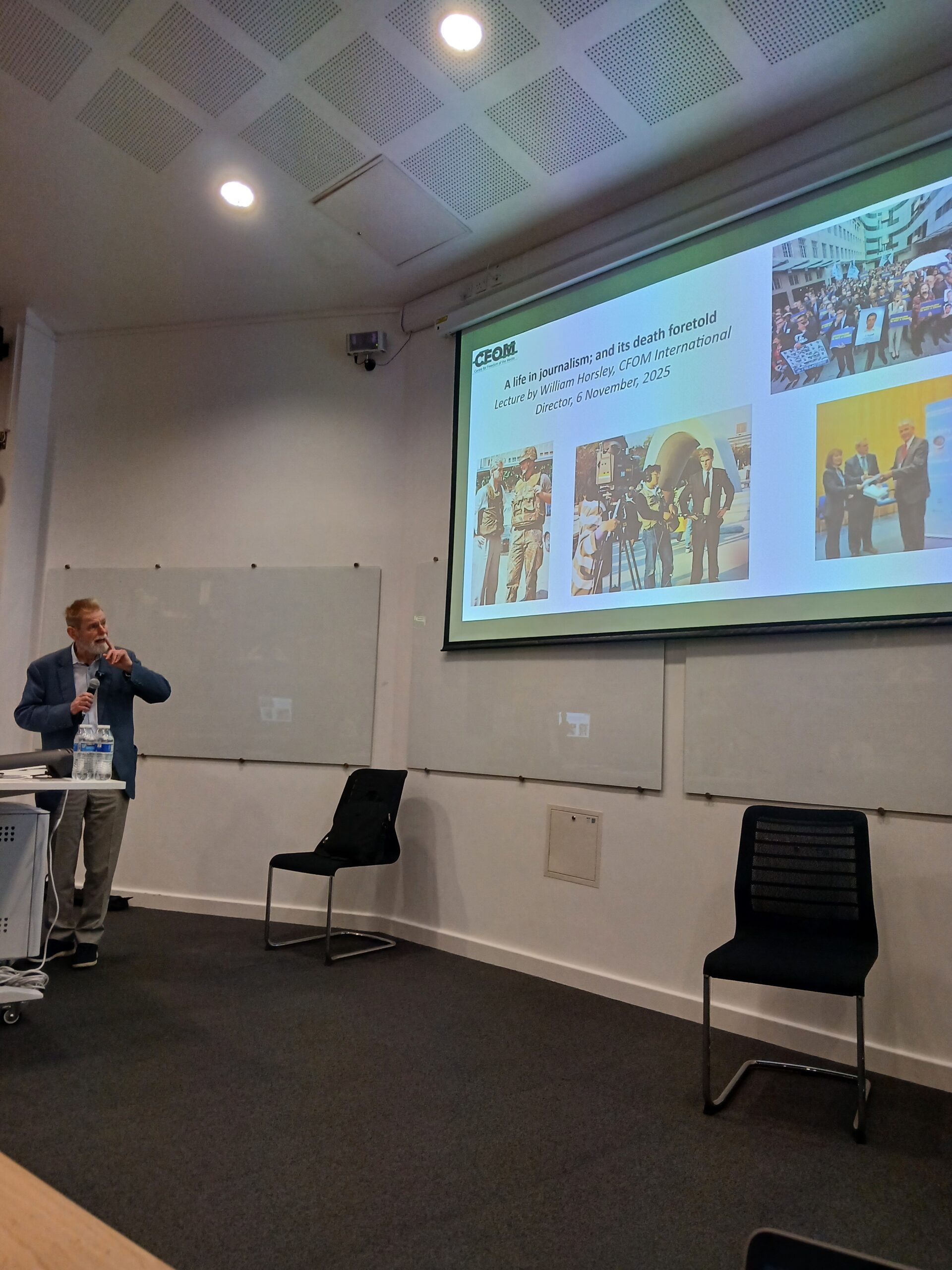
William’s lecture, ‘A life in journalism; and its death foretold’ drew on his experience as a BBC foreign correspondent to trace how, during the last quarter of the 20th century, powerful global movements for basic democratic rights combined with increasing popular demands for press freedom to bring a dramatic end to Soviet-style communism in Europe, as well as to US-backed authoritarian governments in the Philippines and South Korea. But within a dozen years after the Fall of the Berlin Wall in 1989, the liberalising trend began to go into reverse. It was fuelled by renewed international conflicts, the US “war on terror” which followed the 9/11 attacks in 2001, and harsh crackdowns on dissent in response to the Arab Spring and the global Covid pandemic.
Authoritarian and nationalist governments then took power in places like Russia, Turkey and Hungary, enacting punitive laws and suppressing public interest journalism by seeking to “capture” the news media. The re-election of Donald Trump in 2025 has even seen the US government, long seen as a global champion of press freedom, apparently “going over to the other side”, William said. These things need not point to the demise of inquiring and critical journalism. But being a journalist has never been as dangerous as it is today, and the climate in which journalists must work has never been as hostile as it is now.
Following the lecture, William asked Professor Bojan Bugaric from the School of Law at the University of Sheffield to elaborate on the phenomenon of so-called “illiberal democracies” which are said to have come into being in some post-communist countries. Professor Bugaric identified the main features of such illiberal democracies as being the successful “capture” of the most powerful news media in that country, combined with the politicisation of the judicial system. Those means of effective control can enable a single dominant political party or movement to win successive elections, so maintaining a long-term grip on power.
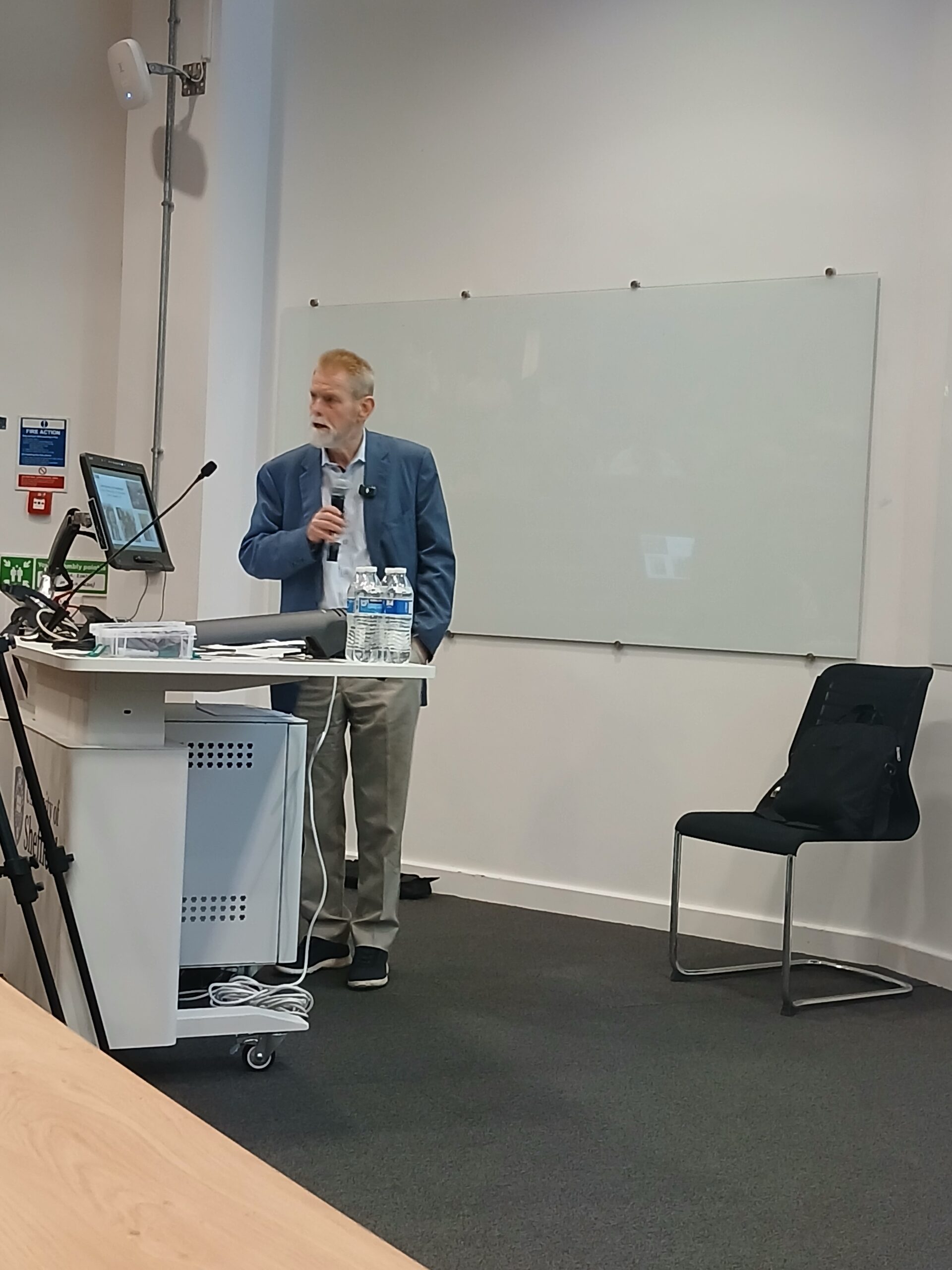
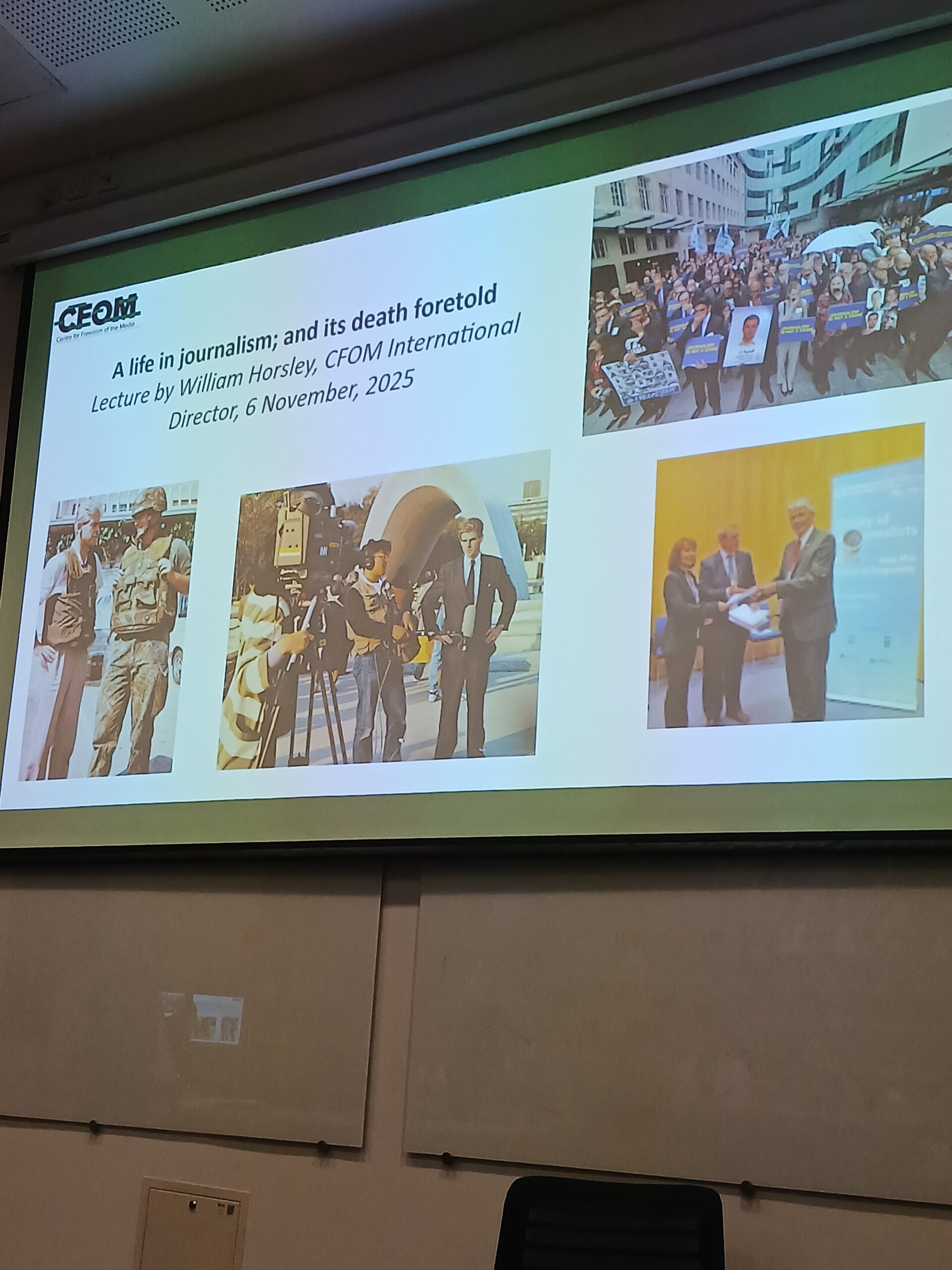
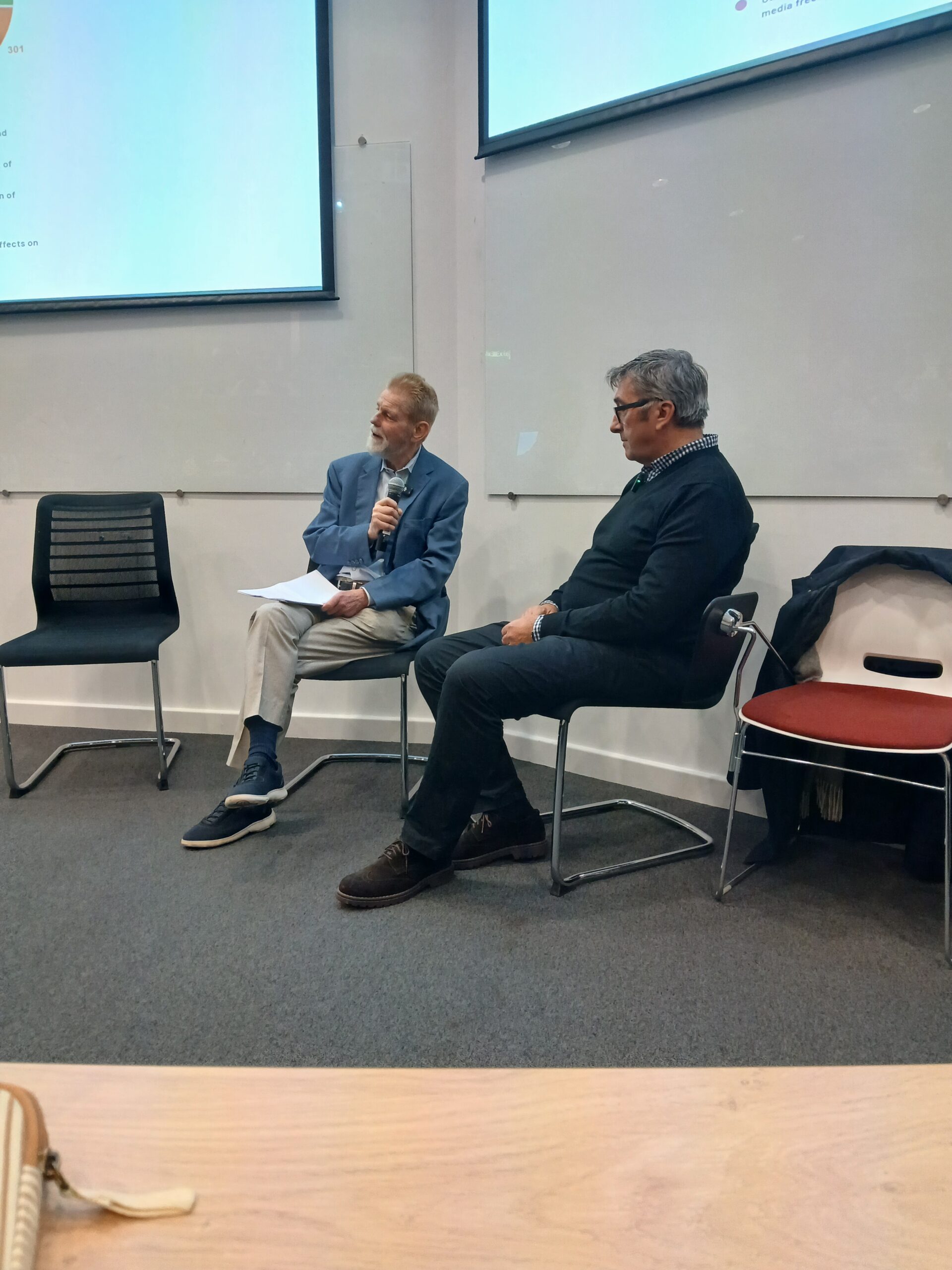
In the second part of the CFOM panel, William moderated a panel discussion: Journalism and defence of truth in an AI-shaped world. Tami Hoffman, Director of Public Policy, the Guardian, opened the panel by stating that AI is not magic, but it is important, here to stay and we can’t bury our head in the sand. She emphasised the importance of staff training on AI, but to use it as a co-pilot and not to make decisions about people. She emphasised how the human element of journalism is still of the utmost importance as people are more likely to open up and trust a journalist than AI. She also stated how organisations need to be honest with audiences about how they are using AI and demonstrated the Guardian’s practice of how to use AI.
Ross Higgins, Head of Bellingcat’s Financial Investigations Team, then spoke about how Bellingcat uses AI in its open source investigations. He also showed how AI was being used by certain governments and organisations to create deepfakes to try and influence election, citing Armenia as an example. He stated that AI is a new challenge and because of this we need to know the tools available to understand what we are looking at/reading and to question it. However, he did say that people have become savvy to fake information on the internet created by AI and are more sceptical, making it harder for disinformation campaigns.
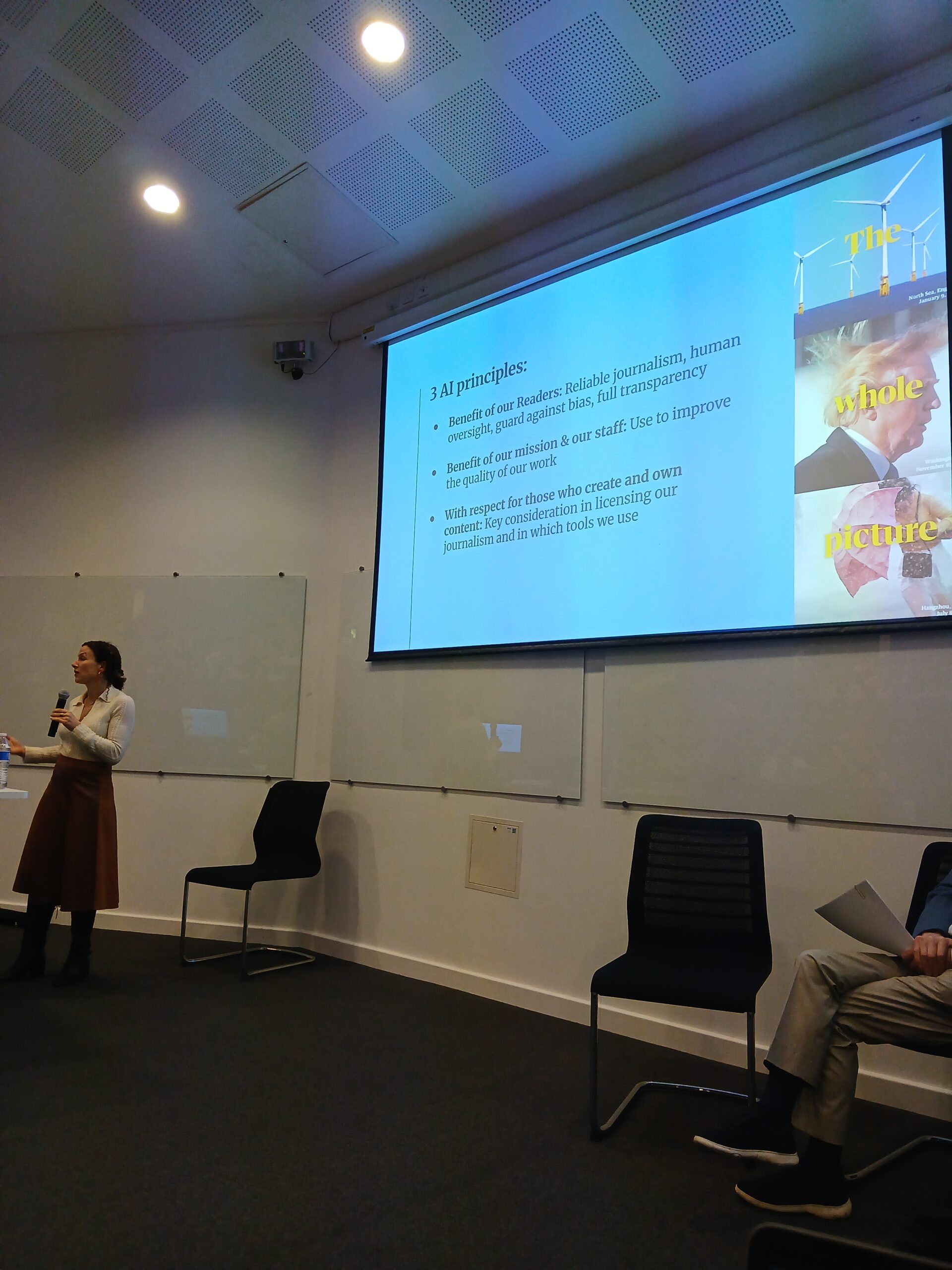
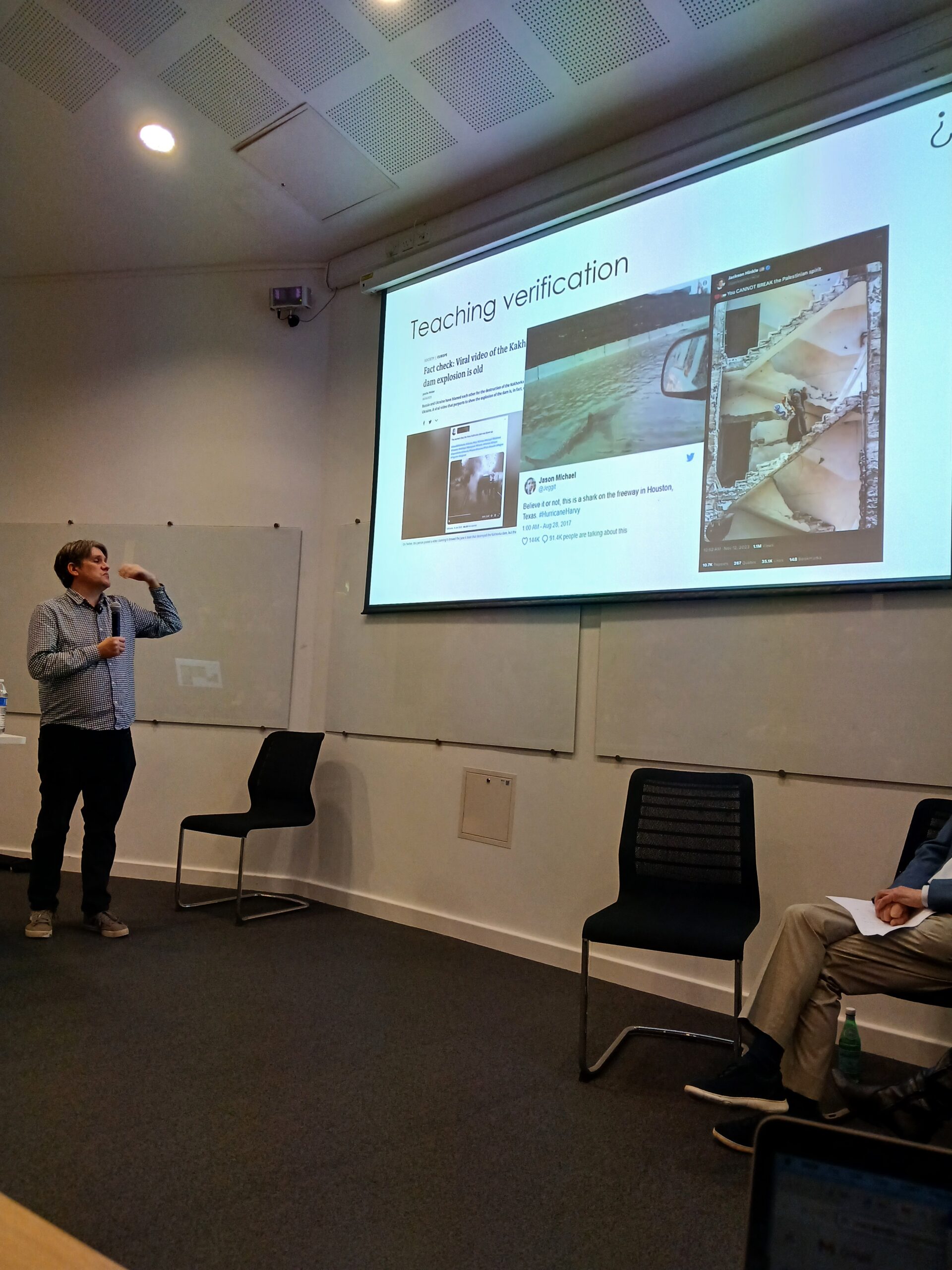
You can watch William’s farewell lecture and the panel discussion below or click here.
